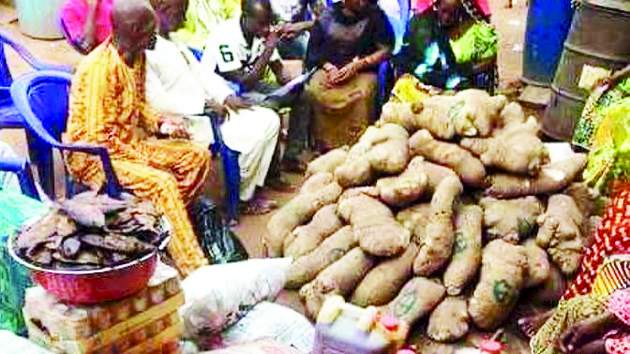
Despite institutional and individual efforts at reducing the cost of traditional marriage rites in some parts of the South East geo-political zone, especially Imo State, to foster timely marriage among young men and women of marriageable ages in the region, the desired result has remained a mirage; no thanks to greedy parents and kinsmen who see marriage as transactional instead of cultural relationship between the families involved. CHIJIOKE IREMEKA writes about the noiseless protests of young women in Igbo land who are questioning the situation that reduces them to mere objects in the hands of their husbands.
Recently, a story of a young man from Bayelsa State, Biobelemoye David, who abandoned her fiancée during the marriage rites in her community in Imo State when what happened during the ceremony was considered as extortion by the kinsmen of her wife to be, went viral on social media.
Biobelemoye walked out on his fiancée and her people due to his alleged extortion.
According to the report, he was made to pay N1.5million to cater for food and hiring of tents, chairs and a public address system cum musical sound system. He was also made to set aside N100, 000 as the bride price, which the both families had agreed upon.
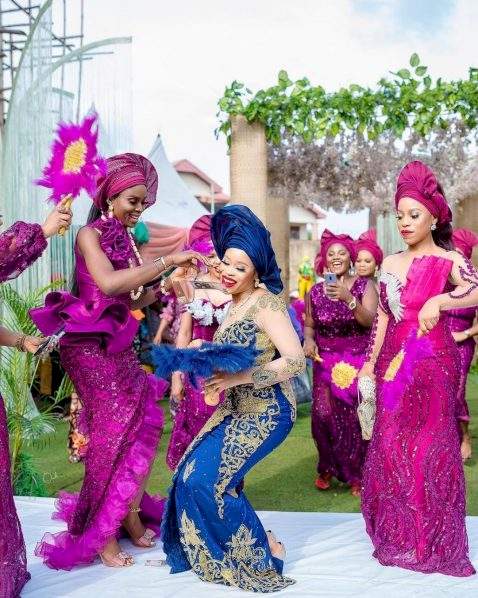
It was also learnt that Biobelemoye was coerced to add N50, 000 to the bride price (totaling N150, 000) as a penalty for putting the bride in a family way before officially asking for her hand in marriage, and was further fined N10, 000 for making a diversion to the wrong path and ending up in a different homestead instead of the bride's.
Biobelemoye was also asked to pay N15, 000 to appease the elders who were said to have become tired of waiting for his arrival. The young man was said to have started losing his well-stretched temper when the whole scenario started, especially when he was fined N15, 000 thrice for unveiling wrong ladies instead of his bride. Twelve ladies were covered in loose robes from head to the toe and were paraded before Biobelemoye, who was asked to unveil his fiancée, but uncovered the wrong person.
He finally lost his temper when the elders demanded for a refund of the N850, 000 meant to be the amount spent as the bride's school fees and upkeep since she started primary school.
At this point, according to the story, Biobelemoye excused himself to visit a nearby latrine. When he was away from their midst, he switched off his cell phone and disappeared. An eyewitness said he was last seen in a Bayelsa-bound bus from Imo.
High cost of traditional marriage rites, especially bride price in some South Eastern states, particularly Imo, is a common experience many men who had followed their would-be-wives to their communities for marriage consummation encounter. There are stories of some men who abandoned their marriage plans while others go on with the experience but later severe relationship with the bride's families as pay back package. The situation usually put pressure on the newly married couple. Women who were affected are canvassing revisiting the issue that is perceived as crucial to the success or otherwise of their marriage.
A move to end extortion of young men seeking to marry Imo State women was made by a lawmaker who sponsored a Bill on the floor of Imo State House of Assembly in that regard. The lawmaker representing Obowo State Constituency in the Imo State House of Assembly, Kenneth Ibeh, tried to abolish the alleged extortion when he sponsored the bill seeking to reduce the expenses of marriage in the state to N180, 000.
"Imo women are not getting married due to the high cost of marriage and bride price," Ibeh stated on the floor of the House as he presented his bill. He said his move was necessary as many young women in the state were yet to get married due to the expensive marriage rites and the bride price.
Presenting the bill for second reading, Ibeh lamented that outrageous marriage bills had caused many ladies to remain single, as suitors could not afford to pay.
"A suitor coming to pay for a lady's dowry may find it tasking to settle for the English wedding, which again demands more expenses. It's quite unfortunate that this practice has caused so many of our marriageable ladies to remain single and men apprehensive of taking the bold step. This is wrong and we must discourage it at all cost," Ibeh stated.
According to the bill, once a suitor pays and completes the bride price of a woman, a clearance certificate should be issued to the groom by the father of the bride, who will present the certificate to the traditional ruler of the community. This will then be presented for the final issuance of Customary Marriage Certificate at a cost not exceeding N1, 000.
The bill prescribed that no customary marriage in the state, including the final stage of the igbankwu ceremony, shall exceed the sum of N180, 000 in cost, and that the bride price should not exceed N80, 000.
However, traditional marriage rites, especially the bride price payment, are regarded as very important aspects of Igbo culture. Bride price itself is seen as a symbol of total commitment and bond between the man and woman under the Igbo traditional nuptial culture.
Though the practice has been grossly abused in recent time by some kinsmen who do not understand the underlying reason for payment of bride price in Igbo land, these traditional rites remained very crucial in the region.
While the women of younger generation in Igbo land are of the opinion that payment of bride price on a woman and extortion of the groom reduce the bride to a mere commodity, in the sense that commodification breeds desire to control or treat a woman as an object, the older generation believe it's a primary marriage rite in Igbo culture and should not be a reason for dehumanisation of women as the western feminist school of thought suggests.
The opinion of the older generation is in line with that of the late Jimanze Ego-Alowes, who viewed bride price payment as a man's gesture of responsibility, appreciation to the family of his bride and accordance of honour to his new bride.
But the women of the western feminist school of thought argue that payment of bride price by a man places him in an undue advantaged position over the woman, which is often exploited in moments of conflict.
The Guardian learnt that this advantage that men are perceived to have is similar to commodification in the sense that by payment of the bride price, the man is given the right of a buyer. These views are inspired by the women's constancy to western radical feminist perspective, which persistently trace all societal problems faced by women to men.
It was also learnt that these notions are often mediated deliberately to portray men as potential abusers and opportunists who take pleasure in the suffering of women. Thus, the women find bride price payment culture and unending demands from their kinsmen as enabling tools of patriarchy for the perpetual subjugation and enslavement of women.
While the Igbo culture dissociates itself from the extreme provisions of radical feminism, the bride's parents and kinsmen need proper sensitisation and reorientation in this regard as the bride price cannot equate all the wealth expended in raising a bride from cradle to adulthood. Hence, hiking the cost of bride price and other traditional marriage rites in general, has been a major issue that sometimes determines the fate of a young woman of marriageable age in Igbo land, especially in Imo State allegedly known for mountaineering these rites in the course of their daughters' marriage.
"As a result, certain unlucky women in the area are now only good for relationships but not good for marriage as many men who do not see the sense in breaking the bank to settle high traditional marriage rites that would not guarantee the sustainability of the marriage, abandon the daughters of expensive traditional cultures for others with sensible and marriage-friendly cultures," James Uba, a father of two, who had encountered such practice, said.
"In most cases, it's the greed of their kinsmen who are bent on dry-milking every young man seeking their daughters' hands in marriage for their own selfish interests that make some men to date their daughters but will not marry them. They do not care if the marriage ends abruptly as a result of excessive demands from their potential sons-in-law as long as they have peanuts to share.
"Sometimes, even when their potential sons-in-law want to shoulder these outrageous billings, the grooms' people would prevail on them not to venture into it, especially where there are women from other regions whose cultures are begging for men to marry their daughters for a lasting relationship.
"When I hear that Anambra men don't like marrying Imo women, I laugh and maintain my peace. Yet, my trader brothers have some reservations about marrying women and their culture, though all that has changed now because my brother married an Orlu woman.
"Anambra men are serious-minded people and do not throw away money anyhow. I will not sell my shop and pay bride price and come back starving. It doesn't make sense. With N100, 000 you will get married in my community and go to bed. This is why a girl of 18 or 20 years is married in my community. You can't find a woman of 30 years or even 28 still unmarried in my community except she has unmarriageable manners," he added.
Irritated by the situation, women from the affected communities are calling on the appropriate traditional institutions and women groups in the South East and other parts of the country to end the practice that has denied them marriage and pride of place in their matrimonial house as they are now seen as article of trade.
They held that for gender-based violence, particularly against women to stop and the struggle for gender equality to yield desired results, the act of 'selling' women to their husbands in Igbo land in guise of expensive traditional rites has to stop, else the menfolk would continue to treat their partners as subjects purchased from their kinsmen.
The Guardian learnt that the practice has also affected the aspect of Igbo institution of extended family ties as these sons-in-law who were made to pay through their nose just to start a family would not want to associate themselves with anything that pertains to their bride's family. In most cases, these men will not allow their brides to visit their parents' home without prior notice and would not want their parents-in-law to visit their house unannounced.
"It has a way of destroying marriage ties and putting pressure on the young marriages. It's not what should be encouraged with a long prong. Our parents collect these money but they don't know what we go through, the sacrifices we make in our respective marriages to be together," a victim, Nneoma Okolie, said. She promised to join forces with others to end the practice.
Lotanna Achebe argued: "A woman cannot allow or connive with her parents and kinsmen to collect my life savings in one fell swoop without thinking of how I will survive afterwards and come to my house to do gender equality. No, it's not possible. We can't be equal because I spent my life savings to acquire her like a property with documents duly signed."
A teacher and father of four in his mid-40s from Ibusa, Delta State, Kingsley Aghanwa, spoke of his ex-fiancée: "When I was ready to settle down, I first met this young nurse, Jane. We started dating and when the time was ripe for me to introduce her to my parents, I took her to my parents. I made my intensions known to her. Then, she started telling me that her mother said she (mother) took loans from her auntie to train her in school and because of that she (fiancée) must train her younger ones before getting married.
"After that she said that their house was uncompleted and that her mother said she shouldn't get married until she had started working to complete their house so that people would have where they will stay during the traditional marriage.
"At first, I thought she wanted to use it to discharge me, but by the time I showed interest in training her younger sister, she was pleased. Though accepted, but my cousin and friend told me not to try it as I would be going into a contract marriage, which may not end well with me. That was how I ended that marriage arrangement."
Other women are also protesting the practice, which has kept them back to their fathers' house for a long time.
Gloria Ukeje, though married with children, feels the pain other young girls in Imo State go through due to delayed marriage or no marriage at all because of high cost of the ceremony.
After losing three suitors, she threatened her parents with unwanted pregnancy and eloping with the fourth suitor before they (parents) reviewed the numerous demands being made on her fiancée, including payment of N25, 000 to collect the list of items to be presented before her kinsmen.
"I told them that I would become the talk of the town when I would get pregnant and disappear. I told them that by then, they would be the one calling on us to do the traditional marriage anyhow. Our mothers and fathers are making marriage miserable for us, yet they will want to defend it," she said.
Similarly, Mrs. Chidimma Igwe said: "We can't continue in this bondage. The people who collect these money on our heads do not have any input in our lives, yet they are the ones making such demands that their own sons will not be able to shoulder if asked.
"It's laziness on the part of our men; they want to be spoon-fed by their fellow men that suffered to make money. They don't even care if the marriage breaks or not. Theirs is to get these material things. When I got married, my husband went to my people here in Lagos and they said they were going to remove certain things from the list for me.
"But to my greatest surprise, my husband did more than what others did in the village. They kept telling my husband that they would send certain things to the village people, on behalf of whom they were acting in Lagos. He paid cash, bought items for men's group, women group, youth and the children of the family.
"He bought bags of rice, these weren't cooked that day. He bought other bags of rice that were cooked. The earlier ones were shared among them. My husband paid complete for everything that they ate. Very funny thing, the drink that he came with were stored under my kinsmen's table and they didn't give my husband's people what to drink.
"Do you know that he had to go and buy drinks in the neighborhood for his people that same day? These are supposed to be our visitors, the people my kinsmen have taken every bit of thing from. That incident had gone but I have not heard the last of it in my marriage.
"My husband will always ask me how on earth I came from such a community. Till today, my husband doesn't like to hear me mention my people's names. My husband doesn't attend anything that happens in my family. What he does is that, each time I want to visit my place for any celebration, he will drop me off there but will not enter. He will come and pick us when we are done or he would ask us to do Uber if he's not chanced.
"I tried talking to him about it but he said he never felt the relationship between my people and his family. When I gave birth to my son, my husband called one of my uncles but he never showed up. He called them again, for my son's dedication and only one came but others didn't even call me or show up. My husband concluded that what they wanted was the money and they have gotten it and decided to stay off my kinsmen's issue.
"What I'm trying to say is that the women and young girls who are the ones affected currently should rise and end this transactional marriage and treat our husbands well so that they do not visit the same on us. If we don't devise a means to end these, the men will continue with what they are doing, and we will be at the receiving end.
"One day my husband told me bluntly that if not that I am a good person, he would treat me like a purchased property. It was sad to hear that but I knew he was reacting to the attitude of my people. It's time to end this insensitivity. Our immediate parents should end these strange treatments."
i want to save it here.

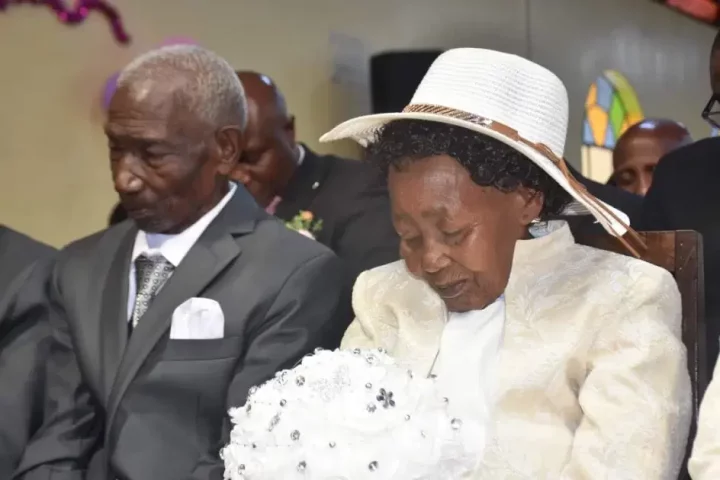



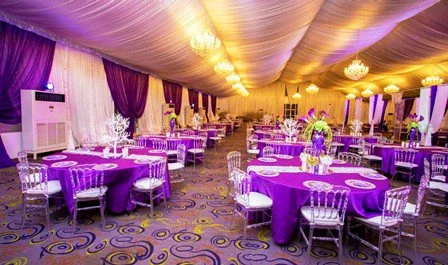
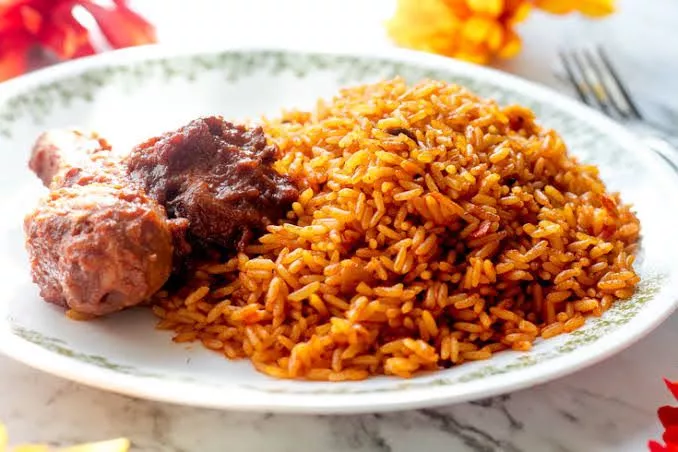








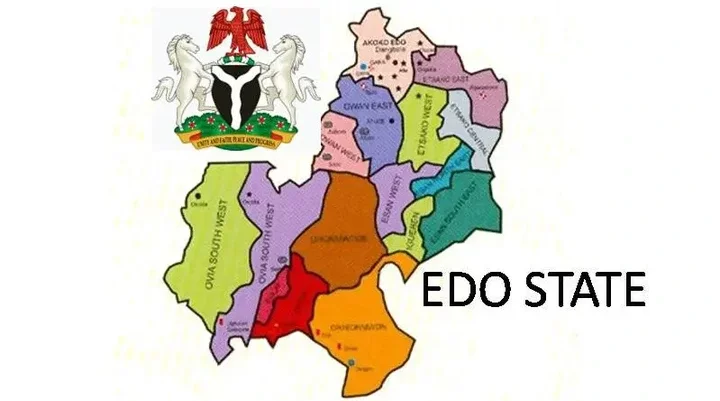


Comments